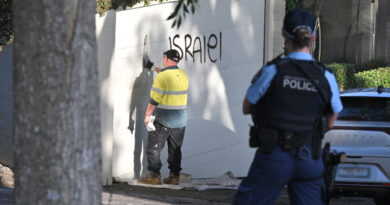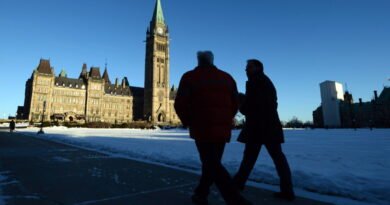Ontario’s Top Court Declares COVID-19 Restrictions on Protests Unconstitutional in 2021
The Ontario Court of Appeal has ruled that restrictions on peaceful protests during the COVID-19 pandemic were unconstitutional, overturning a ruling by a lower court that dismissed the Charter challenge by former Ontario MPP Randy Hillier.
“It is refreshing to see a court do its job of protecting our Charter freedoms, by holding government to a high standard. There was no science behind Ontario’s total ban on all outdoor protests,” said John Carpay, president of Justice Centre for Constitutional Freedoms, which has advocated for Hillier.
Hillier had faced several charges in the spring of 2021 for organizing protests against pandemic measures in cities like Kemptville, Cornwall, Peterborough, and Belleville. The province of Ontario had made it illegal for multiple people to gather outdoors because of the pandemic, while other provinces allowed five or ten or more people to gather together outdoors.
While Hillier was issued tickets for violating lockdown restrictions, he argued in court that the lockdowns were unjustified violations of Section 2(c) of the Charter of Rights and Freedoms, which protects freedom of peaceful assembly.
The Oakes test says that any infringement should meet three factors: be rationally connected to the objective, cause minimal impairment to the right, and be proportional.
While Lauwers acknowledged that the first part of the Oakes test was met, he agreed with Hillier that it was not minimally impairing because an “outright ban on peaceful assembly cannot meet the minimal impairment test.”
Lauwers also said the lower court made a “basic error” when assessing whether the limits on gathering were proportional, as the judge did not examine the limits this measure placed on the “fundamental freedom of peaceful assembly.”
“A complete ban on all gatherings would be maximally effective in preventing the spread of COVID-19, but in human terms, such a ban was neither possible nor desirable,” Lauwers said.
Lauwers wrote that he will give Hillier 10 days from the release of the ruling to provide written submissions, and the province of Ontario 10 days after that to provide its response.
“This decision with [Justice Richard] Mosley’s earlier decision are historic milestones for Canadian freedom. If you were convicted of gathering during COVID you should now seek to have those convictions overturned,” Hillier said.
Justice Mosley, a a federal court trial judge, ruled in 2024 that the federal government’s invocation of the Emergencies Act to respond to the convoy protests against COVID mandates was unjustified. Before that, a public commission concluded that the government had met the very high legal standard for using the law.





